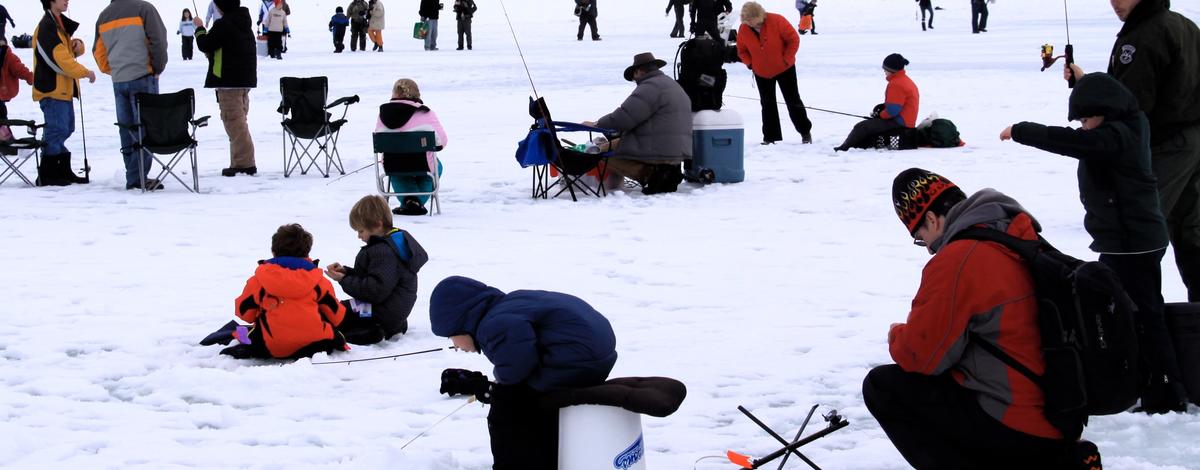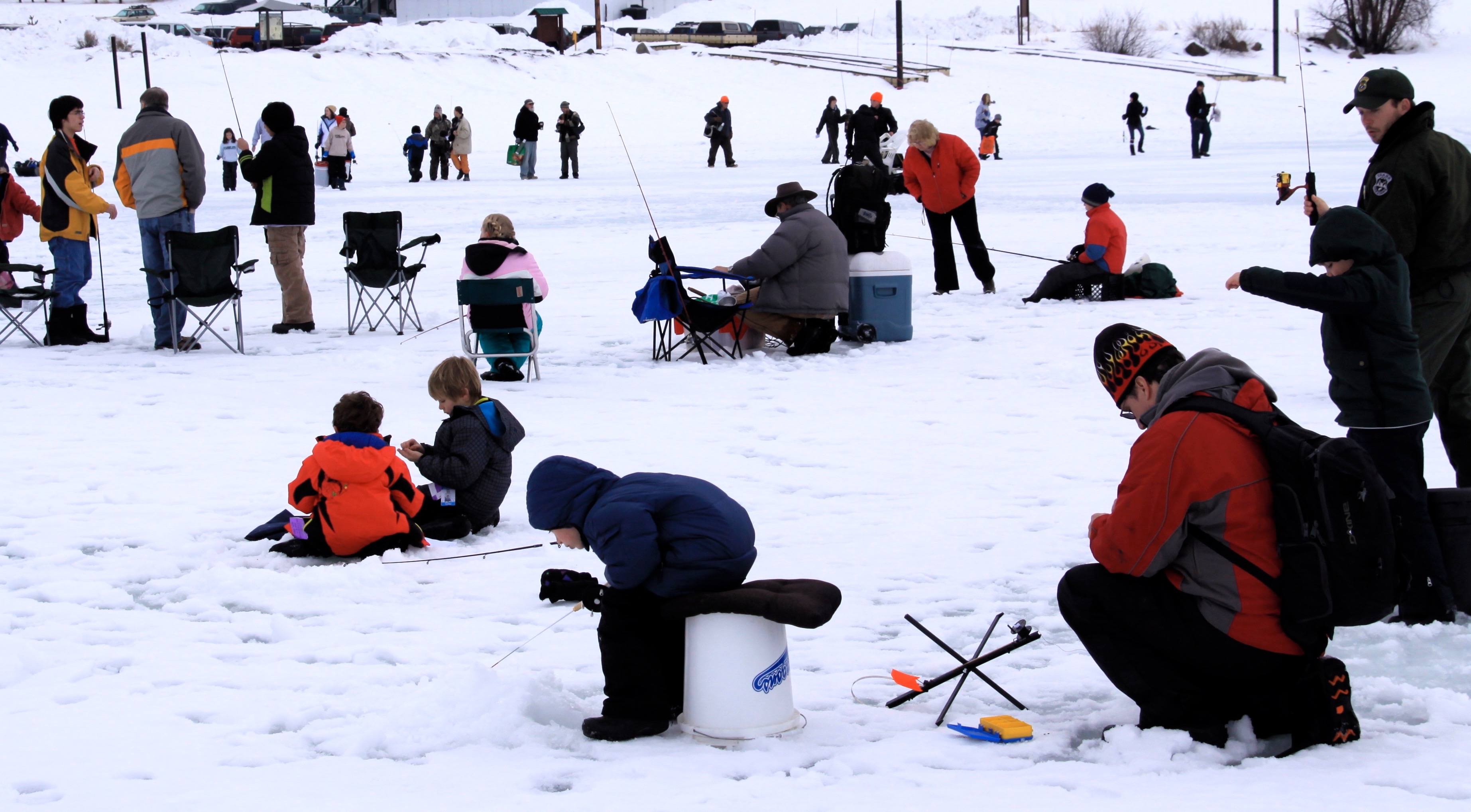
Ask avid ice anglers about a day on a frozen lake or reservoir and their eyes may light up like a friend telling you about a Hawaiian vacation.
Ice fishing is unique, and for avid ice anglers, it’s an opportunity to catch fish in ways you simply can’t duplicate during other seasons. Add a pack of your best pals, a barbecue grill and a comfy chair, and you’ve got a picnic on the ice.
What’s so unique about ice fishing? Aside from the obvious (hint: you’re standing on top of a lake). You can access every part of it without a boat after it’s safely frozen over and the ice is thick enough to walk on. You can catch a trophy-sized trout, or fill a bucket full of perch. Not only that, you can bring as many family members and friends as you like. You can also fish up to five lines per person, and if you’re really talented, have a tailgate-style party while you’re doing it.
Safety first
As a general rule, three to four inches of solid ice will support one person, but thicker ice is better. See the link to our ice fishing page below for more tips about ice safety, but remember, ultimately it’s up to you to decide if conditions are suitable for your party.
It’s also easier and safer to haul your gear onto the ice in a sled, and an inexpensive plastic toboggan works great. If you don’t have one, carry your gear in a bucket, and when you get there, it doubles as a seat.
Getting started
You probably have most of what you need. If you already have a fishing rod and some basic tackle, the only specialized gear you need is an ice auger and a slush spoon. You already know the basic tactics - drill a hole, drop your baited hook or lure and wait. It’s literally that simple, and when fishing is hot, you will be amazed how much action those simple tactics will get you.
But like all fishing, there are varying degrees of expertise, and a variety of special equipment that separates casual ice anglers from the experts.
What can you catch?
Trout and perch are the two most common species people catch through ice, although there are many others. Trout tend to be cruisers, so they might swim by and find your bait.
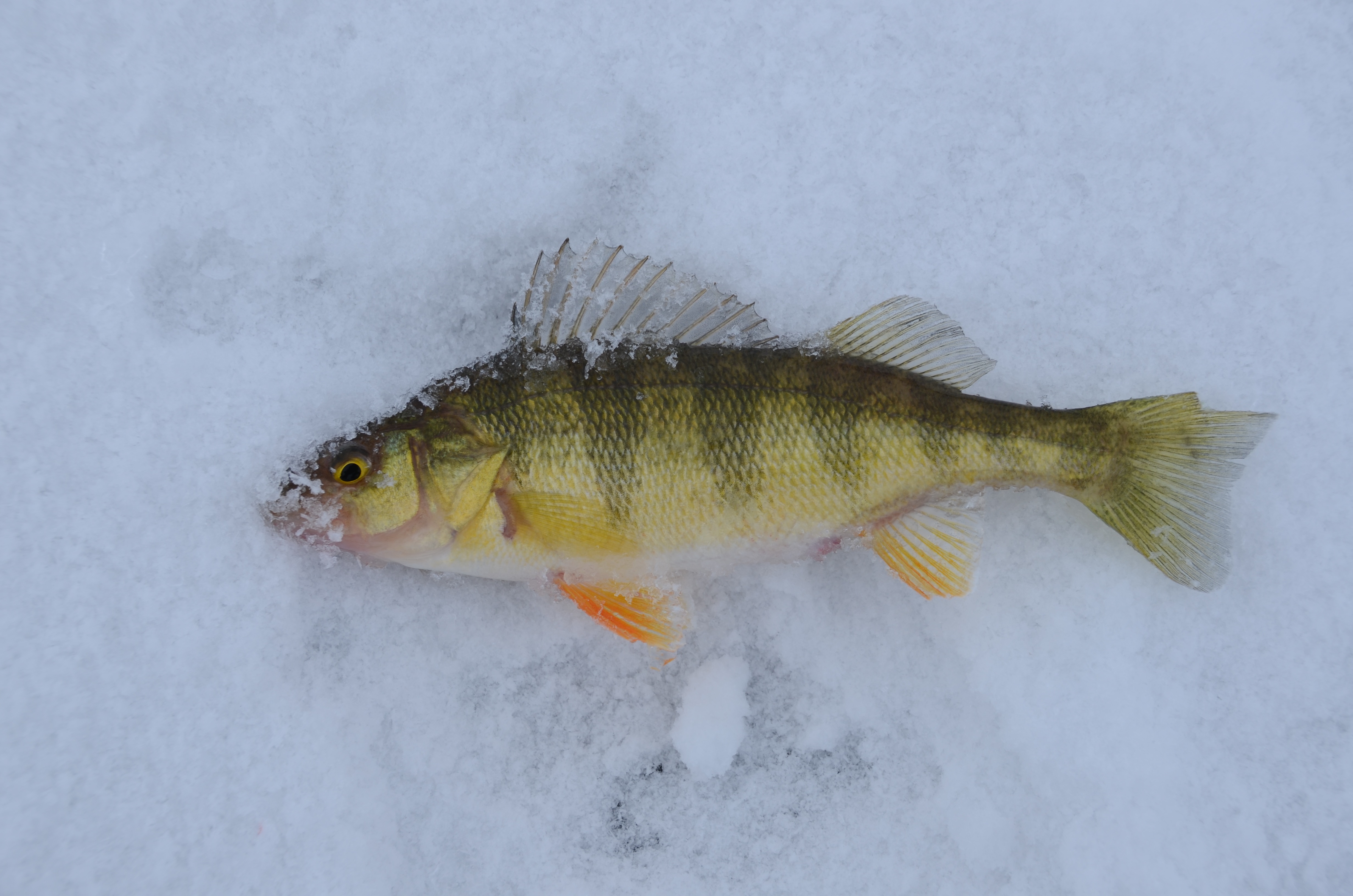
Perch are typically found in schools, so where you catch one, you’re likely to find others. Perch and other panfish tend to move around less than trout during winter, but they may move to different parts of the lake throughout the ice fishing season.
Where to start
While the entire lake or reservoir will be accessible for ice fishing, getting to the ice is another matter, so people typically start around areas where there’s plowed parking.
Once you’re there, you can walk to your fishing spot. Remember it’s common for fish to be in shallow water during winter, so don’t feel like you have to go far or fish deep. Watch where other people are fishing and start there. Ice anglers tend to be social, but still keep a reasonable distance from other anglers unless invited to join them, and don’t be surprised if that happens.
Should you fish more than one rod?
Short answer is yes, because you can. Idaho allows up to five lines per person in most waters (check the fishing rules for exceptions). Ice fishing rods and reels are inexpensive, and you don’t even need one. You can make a basic ice fishing rig with a wooden dowel, a piece of wire, some fishing line and a hook.
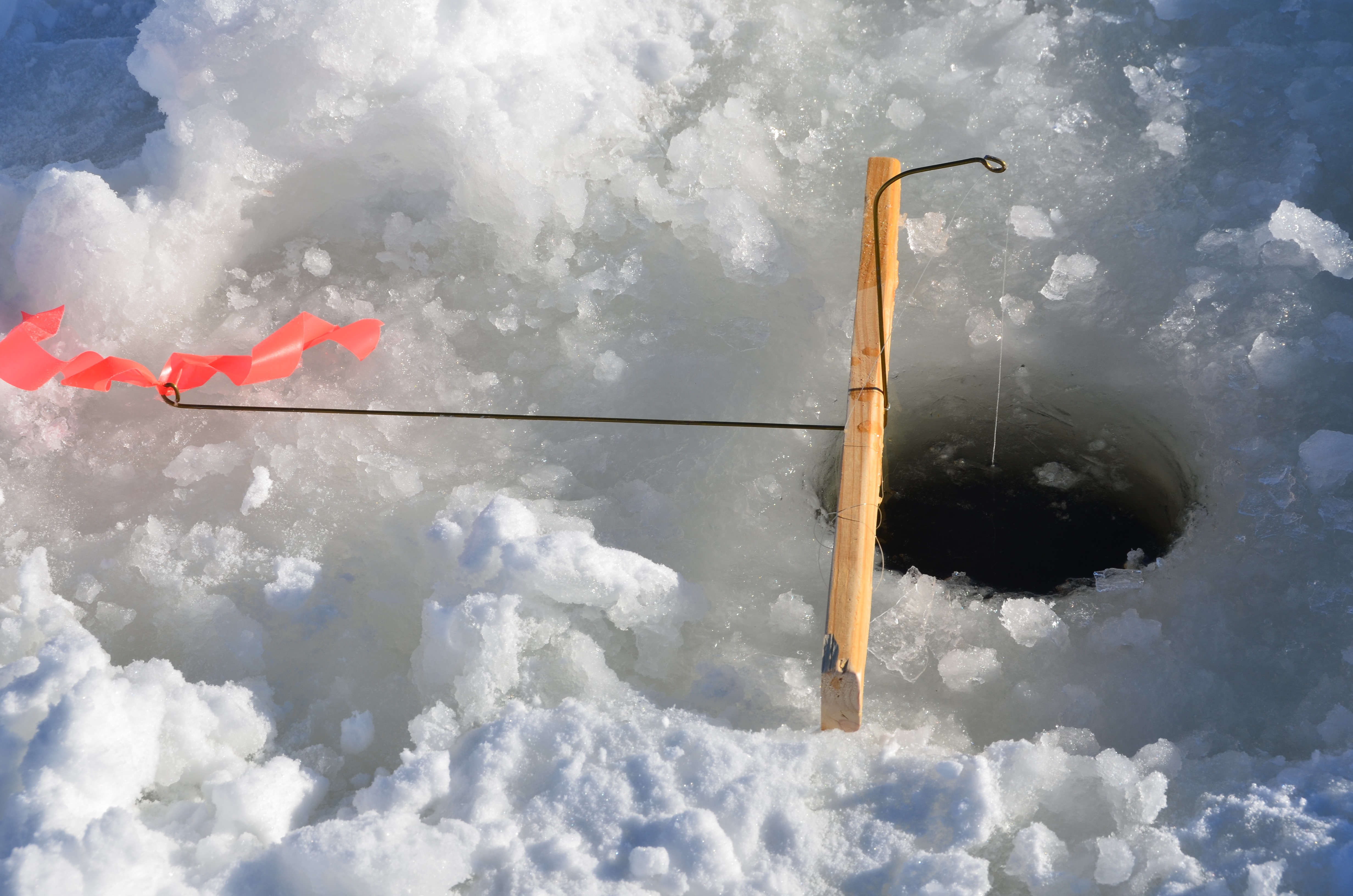
Multiple rods or ice-fshing rigs (aka tip-ups) let you fish more water and experiment with depths and bait, and besides, it’s fun to run between your sets when fishing heats up.
What’s a Swedish pimple?
Good that you asked. It’s a metal jig that’s popular for ice fishing, although probably unheard of by many anglers who don’t ice fish. You will find that ice anglers do things a little differently. Part of that is there’s no casting and retrieving, or trolling, just jigging, so ice fishing lures tend to be different than other lures.
Jigs are often tipped with bait, such as worms, salmon eggs, meal worms, maggots and manufactured paste baits. It’s good to have a variety of baits because some baits just work better than others under certain conditions, and bait is typically inexpensive.
There are hundreds of jigs and accessories specifically designed for ice fishing, but don't feel like you have to buy a whole new tackle box. Buy a small assortment of tackle to get started and you will improve your chances of catching some fish on your first trip.
Don’t just try to catch a fish, try to learn
Like all types of fishing, ice fishing is a skill that’s built through experience and practice. If you see someone catching fish when you’re not, don’t assume it’s because they have a better fishing spot. The important thing to remember is if you’re not catching fish, try something different and learn from it. It’s those experiences of catching fish, as well as not catching fish, that will provide you with clues for your next outing.
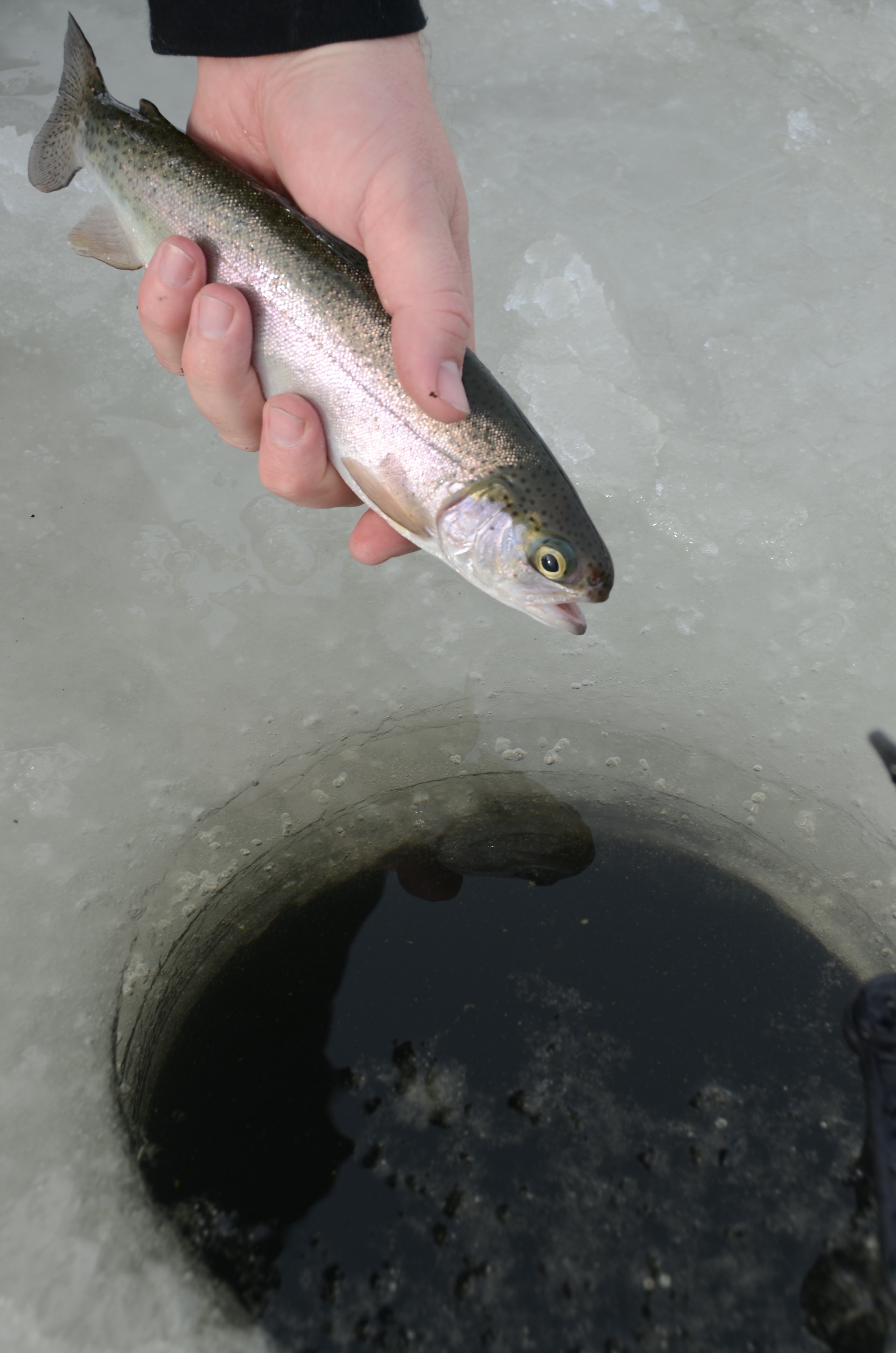
Eyes through the ice
Don’t be surprised if you see people using electronic fish finders, which greatly enhance your ability to find fish and prevent you from wasting time where there are no fish. There are many on the market including some that you can use with your smart phone. Fish finders may seem like a luxury, but many serious ice anglers swear by them. You won’t need one for your first trip, but if you get hooked on ice fishing, it’s a good long-term investment.
Should I stay or should I go?
If you’re catching fish, the answer is obvious, but if not, it’s a little tricky. Because you can go virtually anywhere on the lake, it’s typically best to move if you’re not catching fish, or at least getting bites. Drill a fresh set of holes in a different location and experiment by fishing at different depths. Also consider what you’re fishing for. Remember those cruising trout? They may find you, but it’s usually better to go find them.
Look for clues, such as other people catching fish. Don’t crowd, but don’t overlook the obvious, either. If fish are in that area, that’s where you want to be. Be friendly and ask if anglers if they mind sharing the area. Treat others as you would like to be treated.
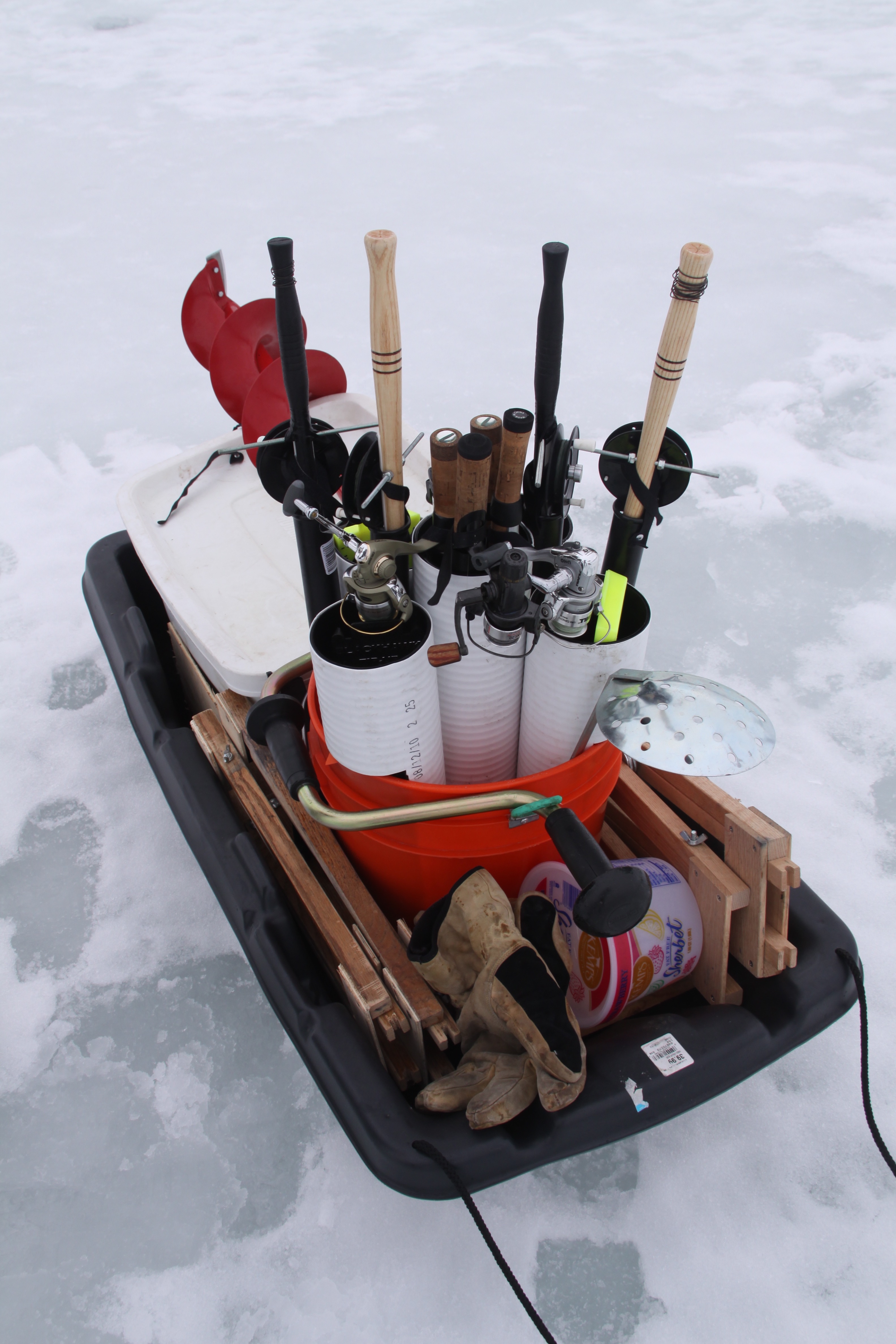
Tailgating on the ice
Part of what makes ice fishing so fun is a picnic on the ice. You can bring as much stuff as you’re willing to haul, assuming the ice depths will support it, and grilling a burger or braut while fishing, or making a cup of coffee or hot chocolate to ward of the chill, makes it a much more enjoyable experience. Go to a popular ice fishing spot and you will be amazed at the creatures of comfort and ingenuity that ice anglers bring. They may have ice fishing tents, sleds, grills, fire pits, portable TVs, etc. Many use ATVs and snowmobiles with sleds to haul all their gear onto the ice.
For more information, go to Fish and Game’s ice fishing page, including where to go ice fishing in each region of Idaho, more about safety, videos and other information.

